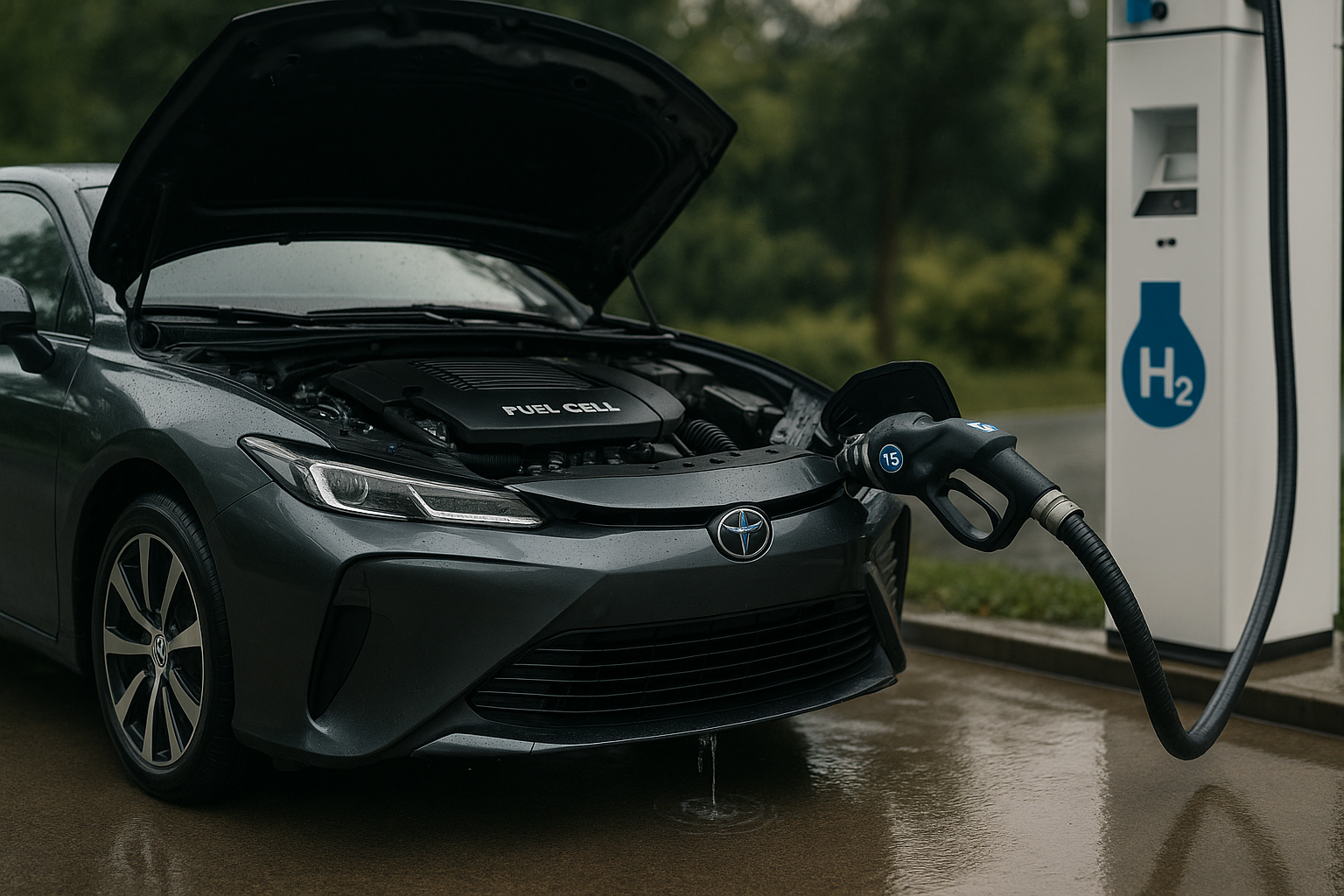Racing to the Future: The Exciting Potential of Hydrogen Fuel Cell Cars
Introduction: Imagine a world where cars run on water. The idea may sound like science fiction, but it's a reality within reach, thanks to the promising technology of hydrogen fuel cells. Hydrogen fuel cell technology is a relatively young development in the automotive industry. It operates on a simple principle: hydrogen, combined with oxygen, produces electricity, with water and heat as the only byproducts. The technology has roots in the space industry, where NASA used hydrogen fuel cells to generate power for spacecraft.

The Advancement of Hydrogen-Powered Cars
The first hydrogen fuel cell vehicle (FCV), the Toyota Mirai, launched in 2015. Since then, other automakers such as Honda and Hyundai have joined the race, developing their own FCVs. These vehicles offer distinct advantages, including zero-emission driving and quick refueling times. However, they also face challenges, such as the lack of hydrogen refueling infrastructure and the high cost of hydrogen production.
Current Trends and Insights
Today, the hydrogen fuel cell industry is growing at a rapid pace. Governments and corporations worldwide are investing in hydrogen fuel cell technology, recognizing its potential for a more sustainable future. For example, Germany plans to have 400 hydrogen refueling stations by 2023, and South Korea aims to have 6.2 million FCVs on its roads by 2040.
The Impact of Hydrogen Fuel Cell Technology
The potential impact of hydrogen fuel cell technology is immense. It could revolutionize the automotive industry, providing a sustainable and efficient alternative to gasoline-powered cars. Moreover, it could significantly reduce carbon emissions, contributing to the fight against climate change. However, the transition to hydrogen fuel cell technology is not without challenges. It requires significant investment in infrastructure and technology development.
The Road Ahead
Despite the challenges, the future looks bright for hydrogen fuel cell cars. As more automakers invest in this technology and infrastructure continues to improve, FCVs could become a common sight on our roads. The hydrogen fuel cell revolution may not be here yet, but it’s certainly on its way.
In conclusion, hydrogen fuel cell technology presents exciting opportunities for the automotive industry. While there are hurdles to overcome, the potential benefits - from reducing carbon emissions to creating a more sustainable future - are too significant to ignore. It’s an exciting time to be an automotive enthusiast, as we watch these developments unfold and shape the future of driving.




